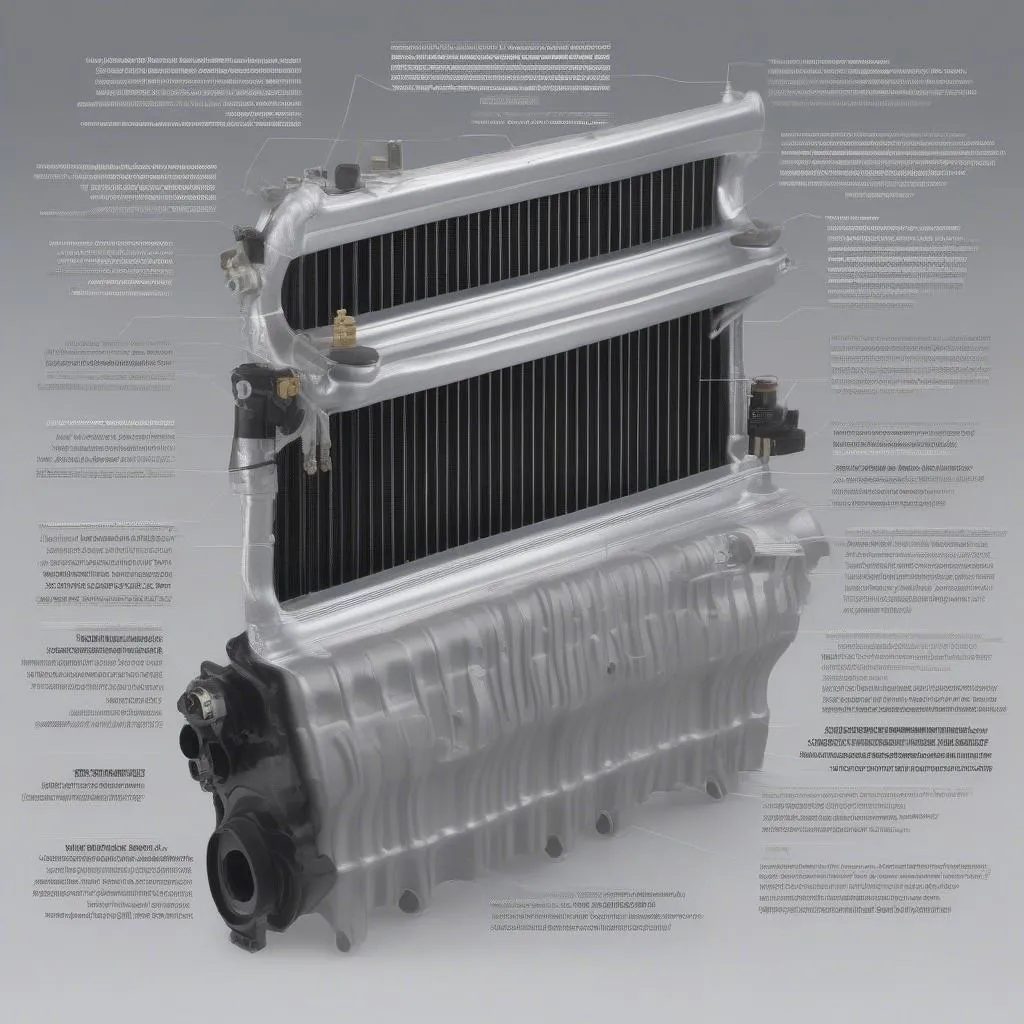BMW X3 Radiator: Everything You Need To Know
Imagine you’re cruising down the highway in your sleek BMW X3, enjoying the summer breeze and the open road. Suddenly, your engine starts to overheat, and you pull over to the side of the road, feeling a surge of panic. This could be a sign of a problem with your radiator, a vital component that helps keep your engine running smoothly.
Understanding the Importance of a Radiator in Your BMW X3
The radiator is a crucial part of your BMW X3’s cooling system. It’s essentially a heat exchanger that removes excess heat from the engine coolant and transfers it to the air. Think of it as the engine’s air conditioner! This process prevents the engine from overheating, which could lead to significant damage and costly repairs.
What Are the Signs of a Faulty Radiator in a BMW X3?
There are a few telltale signs that your BMW X3’s radiator may be on the fritz. Here’s what to watch out for:
- Overheating: The most obvious sign is a rising temperature gauge on your dashboard. This indicates that the coolant isn’t circulating properly, and the engine is overheating.
- Coolant Leaks: If you notice any leaks under your car, particularly around the radiator area, it could be a sign of a cracked or damaged radiator.
- Low Coolant Levels: Regularly check your coolant levels and top them off if necessary. A sudden drop in coolant level can indicate a leak.
- Engine Noise: A gurgling or hissing sound coming from the engine compartment could be a sign of coolant boiling due to overheating.
The Importance of Choosing the Right Radiator for Your BMW X3
When it comes to replacing your BMW X3’s radiator, it’s crucial to choose the right one. After all, you want to ensure a perfect fit and optimal performance. Here are some factors to consider:
- OEM vs. Aftermarket: You can choose from original equipment manufacturer (OEM) radiators or aftermarket replacements. OEM radiators are specifically designed for your BMW X3 and often come with a higher price tag. Aftermarket radiators offer a more budget-friendly option, but it’s essential to ensure they meet the same quality standards as OEM parts.
- Material: Radiators are typically made of aluminum or copper. Aluminum radiators are lighter and offer better heat dissipation, while copper radiators are known for their durability.
- Size: It’s important to ensure that the new radiator is the same size as the original. A mismatch in size could lead to improper fitment and performance issues.
- Cooling Capacity: Make sure the new radiator has a sufficient cooling capacity to meet the demands of your BMW X3’s engine.
Common Questions about BMW X3 Radiators
What is the average lifespan of a BMW X3 radiator?
The average lifespan of a BMW X3 radiator is around 10 years or 100,000 miles. However, this can vary depending on factors like driving conditions, maintenance habits, and the quality of the radiator itself.
How much does it cost to replace a BMW X3 radiator?
The cost of replacing a BMW X3 radiator can vary widely depending on the specific model year, the type of radiator chosen (OEM or aftermarket), and the labor costs in your area. You can expect to pay anywhere from $500 to $1,500 for the entire repair.
Is it possible to repair a damaged BMW X3 radiator?
In some cases, minor leaks or damage to a BMW X3 radiator can be repaired. However, if the radiator is severely cracked or corroded, it’s usually more cost-effective to replace it.
Where can I find high-quality BMW X3 radiators?
You can find high-quality BMW X3 radiators at reputable automotive parts stores, online retailers, and authorized BMW dealerships.
 BMW X3 Radiator Replacement Cost: Finding the Right Solution
BMW X3 Radiator Replacement Cost: Finding the Right Solution
Maintaining Your BMW X3 Radiator for Optimal Performance
To extend the life of your BMW X3 radiator and avoid costly repairs, it’s essential to follow these maintenance tips:
- Regularly Check Coolant Levels: Keep an eye on your coolant levels and top them off as needed.
- Flush the Cooling System: Flush the cooling system every 2-3 years to remove any accumulated debris or rust.
- Use High-Quality Coolant: Use the correct type of coolant recommended by BMW for your X3 model.
- Inspect for Leaks: Regularly inspect the radiator and surrounding hoses for leaks.
Other Related Content
- BMW X3 Diagnostics Tool: If you’re interested in learning more about BMW X3 diagnostics tools and how they can help you troubleshoot problems, check out our article on BMW X3 Diagnostics Tool.
- BMW X3 Engine Problems: If you’re experiencing other engine problems in your BMW X3, our comprehensive guide on BMW X3 Engine Problems can help you identify and address the issue.
Need help with your BMW X3? Contact us via Whatsapp: +84767531508. Our team of expert technicians is available 24/7 to assist you with any diagnostics or repair needs.
Remember, taking care of your BMW X3 radiator is crucial for ensuring its longevity and optimal performance. Stay alert for any signs of trouble and address any issues promptly to keep your car running smoothly.
